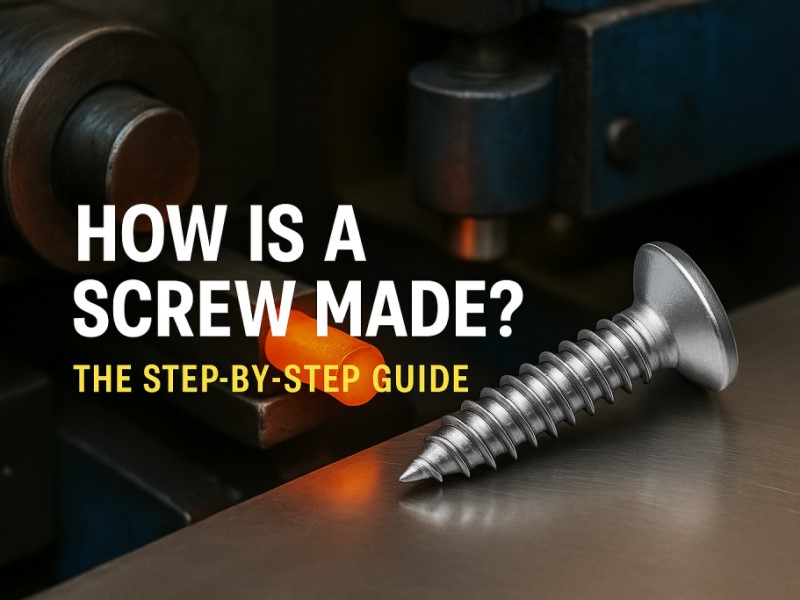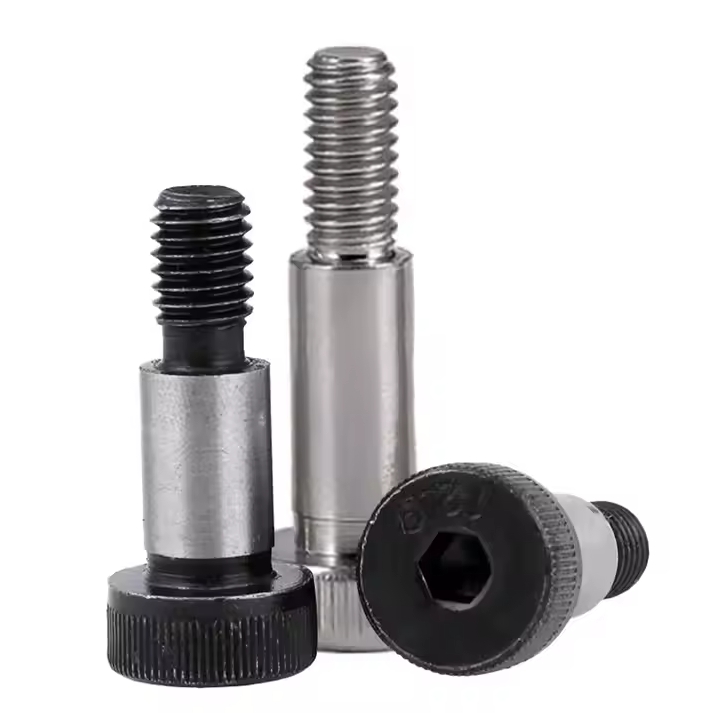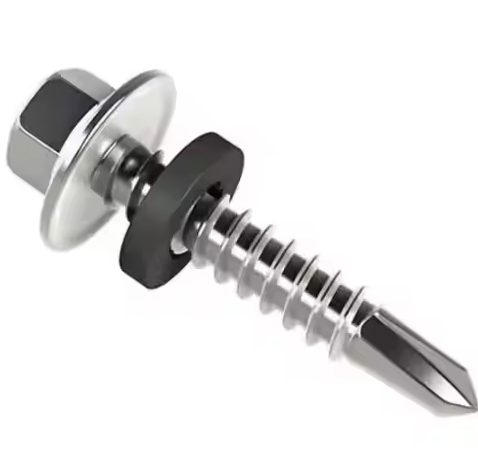How Is a Screw Made? The Step-by-Step Guide

Screw manufacturing begins by shaping steel into strong, threaded parts using high-speed machines and careful testing. In this guide, we’ll walk through the full screw manufacturing process—step by step. You’ll also see how CNRL Fasteners builds durable screws for mining, machinery, and more.
Whether you’re working on a project or just interested, this guide explains how screws are made and why it matters.
What Is Screw Manufacturing?
Screw manufacturing is the process of producing threaded fasteners that secure materials together. Most screws are made from steel, and their strength, thread accuracy, and durability depend on the steps taken during production.
Today’s manufacturers focus on speed, quality, and performance. Let’s walk through exactly how screws are manufactured using industry-standard techniques.
Step 1: Raw Material Selection

The first and most critical step in the screw manufacturing process is selecting the appropriate raw material. Steel is the most common, but alloy steel, stainless steel, or carbon steel may be used depending on the application.
CNRL Fasteners uses high-grade alloy steel in the mining, construction, and automotive industries. These materials meet ISO, DIN, and ANSI strength and corrosion resistance standards.
Step 2: Cutting and Slug Preparation
Once the material is selected, large steel coils or rods are straightened and cut into uniform blanks known as slugs. These slugs serve as the starting point for the screw body. Lubricants are applied to minimize friction and tool wear in subsequent forming stages.
This part of the screw manufacturing process ensures consistent volume and weight for each unit, which helps avoid performance issues later.
Step 3: Cold Heading the Screw
Cold heading, also called cold forming, is where the screw gets its head. Using high-pressure machines, the metal slug is struck and compressed at room temperature to create the screw head. This improves strength by work-hardening the metal.
It’s an efficient method widely used in modern screw production.
Step 4: Trimming and Shaping
Once the head is formed, a trimming press shapes the top of the screw to exact specs. Whether it’s a flat head, round head, or hex socket, each screw type is trimmed to fit its function. This stage is especially important for screws used in precision applications.
CNRL’s socket head bolts and custom screws are trimmed to exact international standards (DIN, ANSI, ISO).
Step 5: Thread Rolling
Thread rolling is a major part of the screw manufacturing process. It involves pressing a die into the screw blank to form the thread shape. Unlike thread cutting, rolling keeps the grain structure of the metal intact and actually makes it stronger.
This is how most industrial screws are made today.
Step 6: Heat Treatment
The screw now undergoes heat treatment to harden the material. This step boosts tensile strength, fatigue resistance, and durability. Depending on the spec, screws may be annealed, quenched, or tempered.
CNRL applies heat treatments to meet Grade 8.8, 10.9, and 12.9 fastener standards for industrial use.
Step 7: Surface Finishing and Plating
Next comes surface finishing. Zinc plating is common for corrosion resistance. Depending on the application and client request, other options include black oxide, phosphate coating, or nickel plating.
CNRL Fasteners offers a range of finishes on bolts and screws used in automotive and heavy equipment.
Step 8: Final Quality Assurance
Every screw undergoes a multi-point inspection before packaging. Dimensional tolerances are checked using GO/NO-GO gauges, thread depth is measured with profile comparators, and hardness is tested via Rockwell or Vickers methods.
CNRL employs both automated inspection systems and trained QA technicians to verify conformance. The result is consistent product quality that meets the demands of international markets.
Industrial Applications: CNRL Fasteners in Action
CNRL Fasteners makes strong, reliable fasteners for industrial use. Our products perform in harsh, high-load environments, from mining rigs to machinery. Here’s what we offer:.
1. Socket Shoulder Bolts – 12.9 Grade

Socket Shoulder Bolts High Tensile 12.9 Grade Allen Shoulder Head Screw M5 M6 M8 M10 M12
More DetailsEngineered for applications under high torque and vibration, these socket shoulder bolts feature a hardened alloy steel body, rolled threads, and high fatigue strength. Ideal for mining machinery and mechanical assemblies.
- High-tensile strength for use in high-vibration industrial machinery
- Precision thread rolling for tight tolerance
- Custom coatings available for rust prevention
2. Customized Self-Drilling Screws

Customized self drilling screws Din 7504 galvanized flat head drywall screws course thread
More DetailsThese self-drilling screws combine a drill bit and fastening thread, allowing for quick installation into metal without pre-drilling. Ideal for use in structural assemblies and metal panel applications.
- Fast, efficient installation without pre-drilling
- Suitable for steel panels and frames
- Multiple head types and finishes
FAQs About the Screw Manufacturing Process
How is a screw made?
A screw is made by cutting steel into slugs, shaping the head, forming threads, heat treating, and finishing.
How do they make screws?
With a step-by-step method involving cold forming and rolling to ensure strength and accuracy.
How are wood screws different?
Wood screws have sharper threads and are often machined instead of cold formed.
Final Thoughts
Understanding how screws are made gives you insight into the reliability of the products you use whether you’re building mining machinery or sourcing components for automotive systems, choosing a manufacturer with strong QA and advanced facilities matters.CNRL Fasteners delivers end-to-end screw manufacturing solutions—from premium raw steel to precision-engineered, ready-to-ship fasteners. Strict quality control, international certifications, and real-world industrial performance back every part we produce. Ready to improve your supply chain with certified, high-performance fasteners? Talk to the CNRL team or explore our full product catalog today.